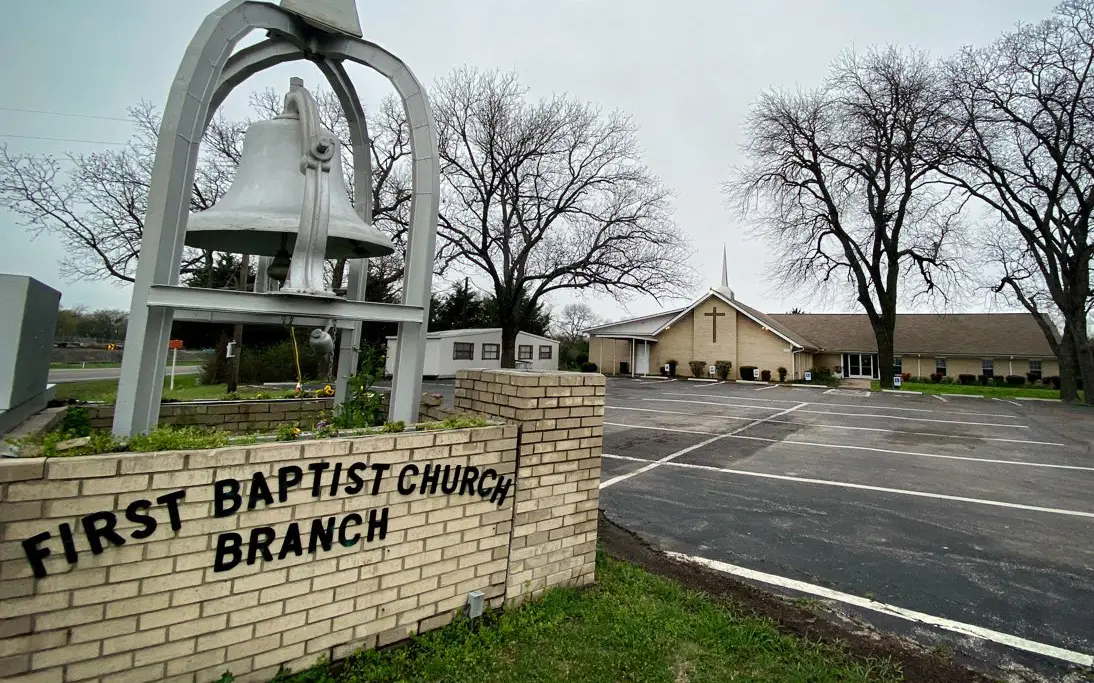MABANK, Texas (BP) – Online giving presents challenges for Grace Community Church in the small town of Mabank, Texas, where many are accustomed to dropping checks in the offering basket or in a pinch, mailing them through the U.S. Postal Service.
As the COVID-19 pandemic forces the church to restructure worship and establish online giving, pastor Michael Cooper told Baptist Press most of his members are not accustomed to tithing and giving online.
“I don’t know exactly how the online giving will go, simply because it’s not necessarily our demographic,” Cooper said. “We have faithful tithers, faithful givers, but a lot of them don’t use the internet for giving or even paying bills. We’re still very traditional; pass the plate, things like that.
“Online giving is something I’ve wanted to do at the church for a while,” said Marc Ira Hooks, pastor of First Baptist Church of Branch, Princeton, Texas. “Just to make things easier for people who are technologically savvy and who do live their lives online. But (I) was reluctant to make that jump because not a lot of my congregation falls into that category.”
The church averages about 30 worshipers, according to the Annual Church Profile, which qualifies it as a “normative size” congregation in Southern Baptist life, according to Hooks. Noting the community, just south of Princeton, doesn’t even have its own zip code, he added “it’s too early to tell” how members will respond to online giving.
Pastor Allen Murray of Centerville Baptist Church in Kelly, N.C., said March 17 he expected to have online giving set up by day’s end. But he said the church’s location “in a very rural part” of eastern North Carolina could pose challenges.
“I think it could pose some great difficulty,” Murray said of online giving. “I know for a lot of our folks, they’re probably not going to use it because they just don’t have internet. They don’t have computers. They don’t have smartphones.”
More than 80 percent of Southern Baptist churches report a Sunday attendance of fewer than 125, according to the Bivocational & Small Church Leadership Network, and some are in rural communities. Many could have continued to hold church services without defying a recent recommendation by the Centers for Disease Control and Prevention (CDC) against gatherings of more than 50 people, but the newest recommendation against gatherings of more than 10 people impacts even the smallest of congregations.
“Part of our worship is through giving,” Hooks said.
In the past few days, Hooks launched online streaming for Sunday sermons, delivered from his church’s office, and online giving through Tithe.ly, which he describes as reliable, safe and easy to use.
“I’m hoping people will continue to give, that they’ll realize what I told them even this morning [in a Facebook post],” Hooks said, “‘The church has not closed. The church has moved outside the building.’ And so we are alive, we are active, we are vibrant, we are helping our community. We are involved in doing what we can to assist both our church members and people outside of our church that need help, and this is a great ministry opportunity for us.”
In Mabank, Grace Community has enough in reserve funds to cover about five months of expenses, Cooper said Tuesday. He views his congregants as faithful givers who will take the extra step to give, whether online, through the U.S. Postal Service, or through hand delivery to the church doors.
“We’ll probably see a dip, but we’re probably not going to see a complete … forsaking of giving,” Cooper said, “because many of our folks are faithful tithers, faithful givers … to the extent that if they miss a Sunday morning service, due to whatever, we’ll see their check come in on Wednesday.
“At this point, we’re not that overly concerned that we’re not going to be able to pay our bills or pay salaries or anything like that,” Cooper said. “We are pulling back on spending.”
At Centerville Baptist in North Carolina, which averages around 75 in weekly attendance, according to the Annual Church Profile, Murray wants to provide members with as many giving options as possible, including mailing checks to the church’s post office box. He estimated 60 percent of church members don’t have internet.
“I hope some folks will take advantage of” online giving, he said. “I hope that this won’t just be something that we need for the temporary, but it will be something that God perhaps could use in the years to come.”
As of midday Tuesday, the death toll in the U.S. from COVID-19 was approaching 100, according to a Johns Hopkins University tracking site. Globally, nearly 7,900 have died of the virus, about 196,000 had been infected and nearly 81,000 had recovered.

